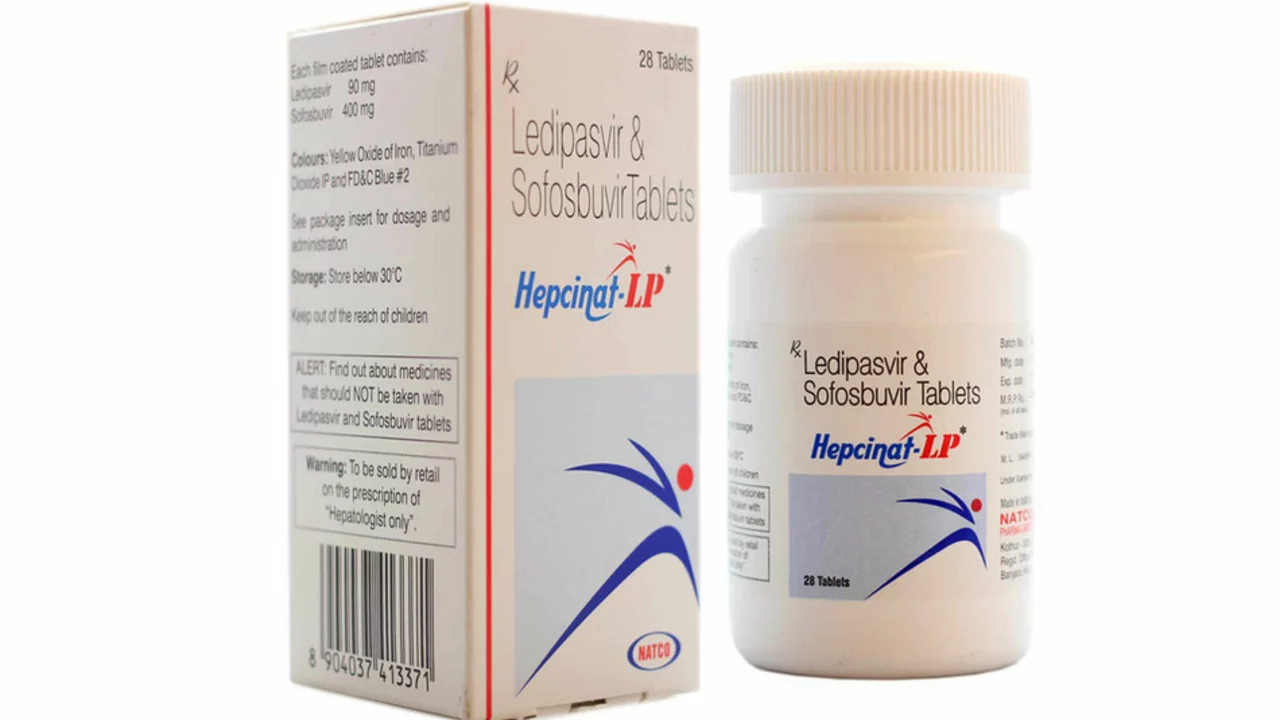Ledipasvir — what it does and when it's used
Did you know a single-pill combo that contains ledipasvir can cure many cases of hepatitis C in a few months? Ledipasvir is an antiviral called an NS5A inhibitor. By blocking a viral protein the hepatitis C virus needs to copy itself, ledipasvir helps stop the infection when used with a partner drug — most commonly sofosbuvir (brand name Harvoni).
How it works and who gets it
Doctors usually prescribe ledipasvir together with sofosbuvir for chronic hepatitis C, especially genotypes 1, 4, 5, and 6. It’s effective for people without cirrhosis and many with compensated cirrhosis. Your provider will check your virus type (genotype), liver status, and prior treatment history before choosing the exact plan.
Typical goals are rapid viral suppression and a sustained virologic response (SVR) — basically an undetectable viral load measured 12 weeks after finishing treatment. Hitting SVR12 is considered a cure in most cases.
Dosing, side effects, and practical tips
Most common prescription: a fixed‑dose tablet of ledipasvir 90 mg + sofosbuvir 400 mg, taken once daily for 8 to 12 weeks depending on your situation. Some people need longer (e.g., prior treatment failure or certain cirrhosis cases). Always follow your doctor’s exact plan.
Common side effects are mild: fatigue, headache, nausea, and sometimes insomnia. Serious reactions are rare but can happen. One important interaction: combining sofosbuvir-containing regimens with amiodarone has caused severe bradycardia (very slow heartbeat) in some patients — tell your doctor if you’re on heart meds.
Drug interactions matter. Strong inducers of drug transporters (like rifampin, carbamazepine, phenobarbital, and St. John's wort) can lower ledipasvir/sofosbuvir levels and make treatment less effective. Acid‑reducing medicines (antacids, H2 blockers, PPIs) can reduce ledipasvir absorption too. Ask your provider how to time or adjust these drugs.
Kidney and liver checks matter. Sofosbuvir’s breakdown product builds up in severe kidney failure, so some advanced renal patients need an alternative. People with decompensated liver disease often need modified regimens and closer monitoring.
Practical tips: take the pill at the same time each day, don’t skip doses, and finish the full course. Keep scheduled blood tests and viral load checks so your doctor can confirm response. If you’re pregnant, planning pregnancy, or breastfeeding, talk with your provider — they’ll advise on timing and risks.
Ledipasvir is prescription-only. If you think you need treatment for hepatitis C, get tested, get a proper workup, and talk to a provider about whether a ledipasvir-based plan is right for you. Questions about interactions or side effects? Your pharmacist and doctor are the best next step.
Ledipasvir: Addressing the Stigma of Hepatitis C Treatment
In my latest blog post, I've tackled the issue of stigma surrounding Hepatitis C treatment, particularly focusing on Ledipasvir. I've explored how this powerful drug is helping to change the narrative of Hepatitis C from a potential death sentence to a manageable condition. Moreover, I've discussed the importance of educating people about the effectiveness of Ledipasvir to help break down misconceptions. Many people don't know that this drug has a high cure rate and minimal side effects. It's time to dispel the stigma and start a more informed conversation about Hepatitis C treatments.
VIEW MORE
